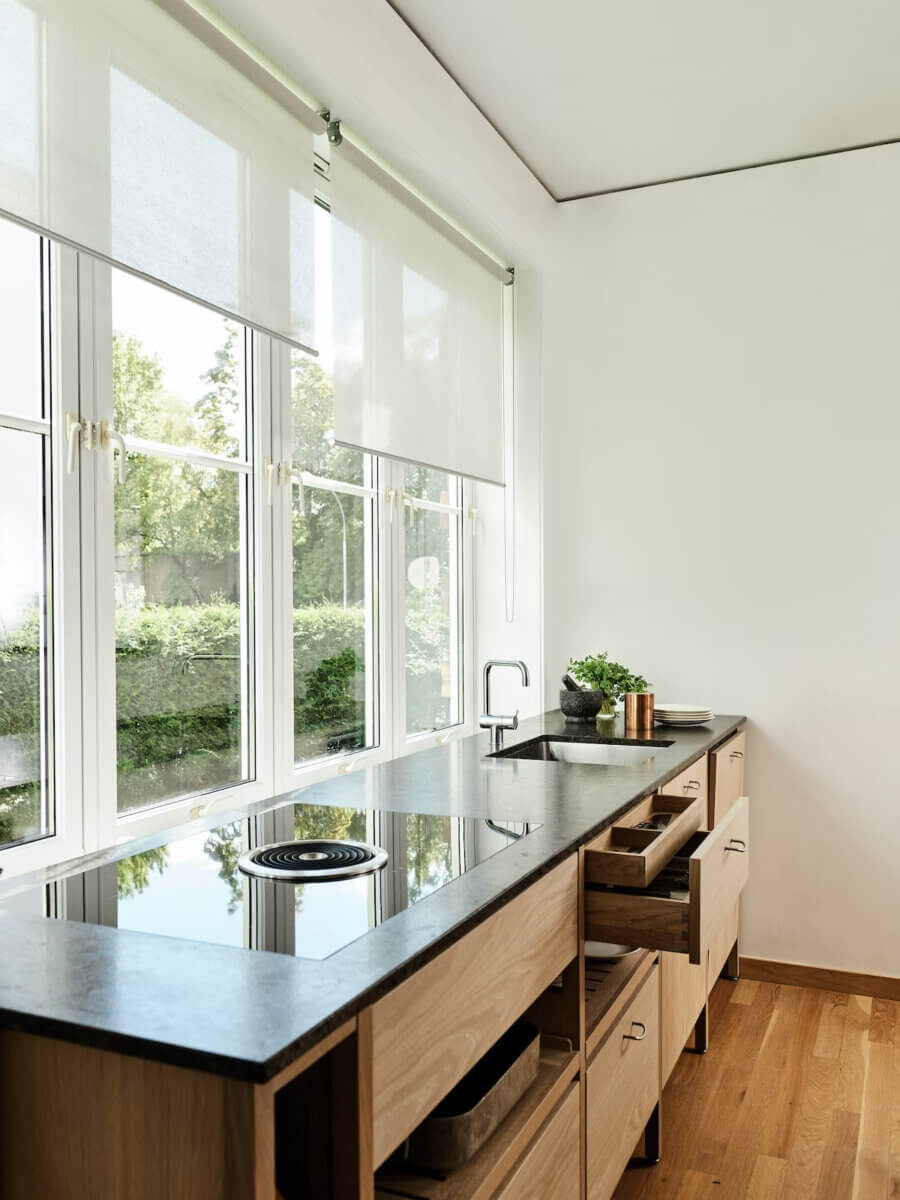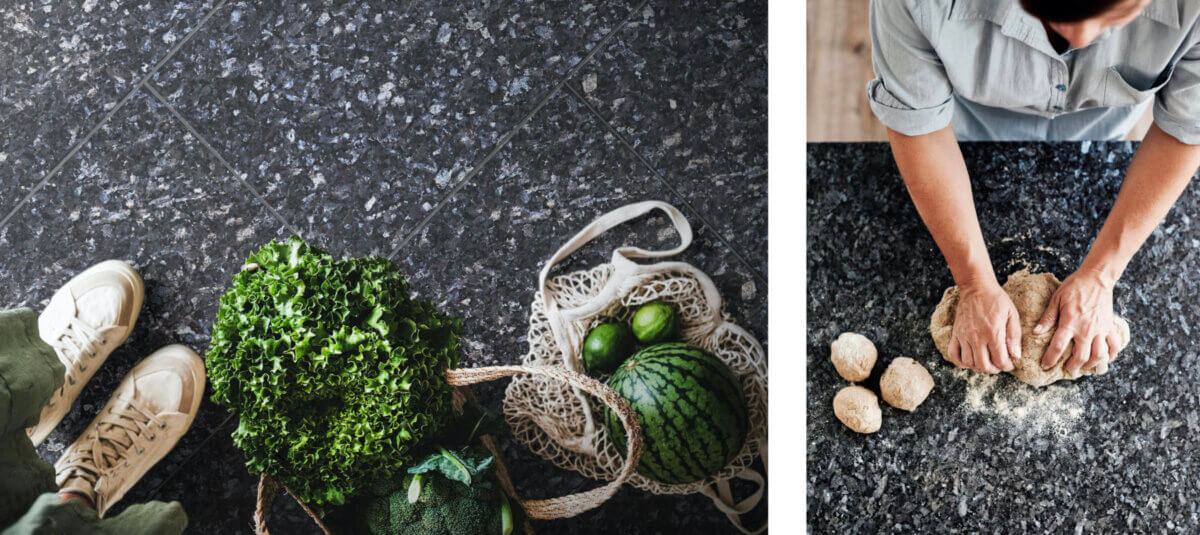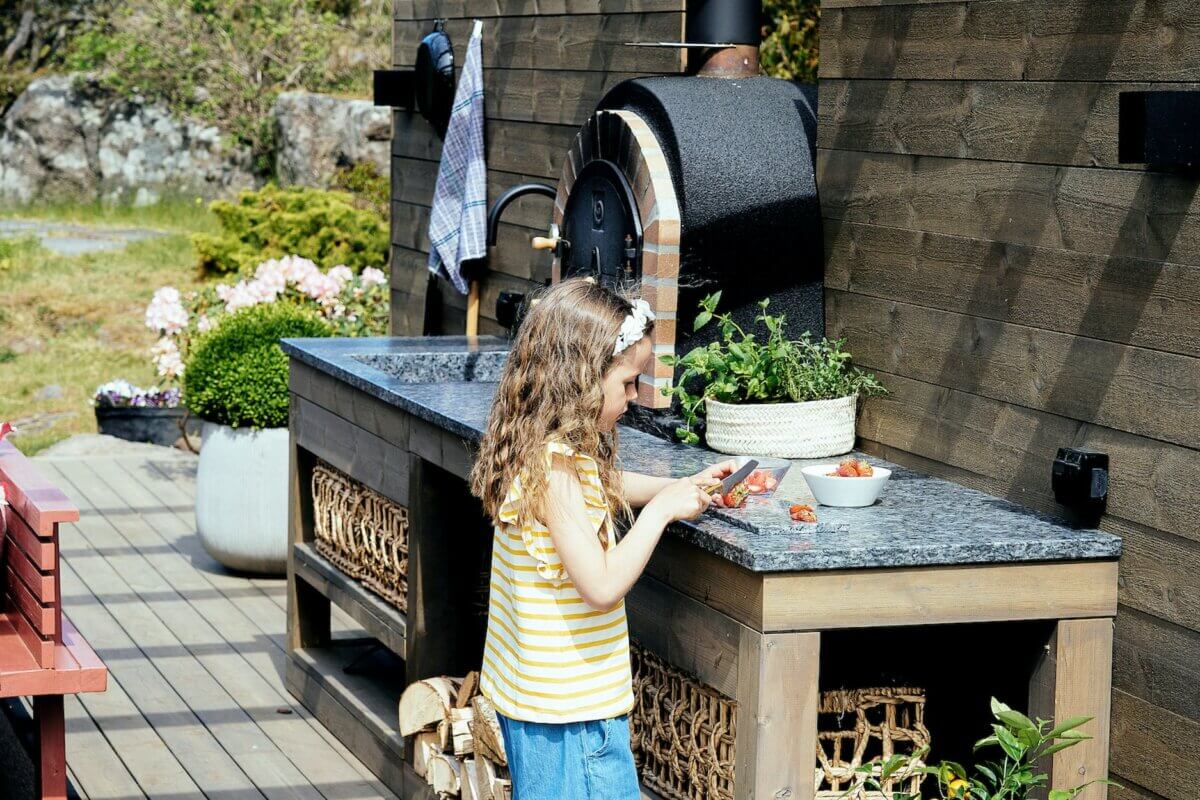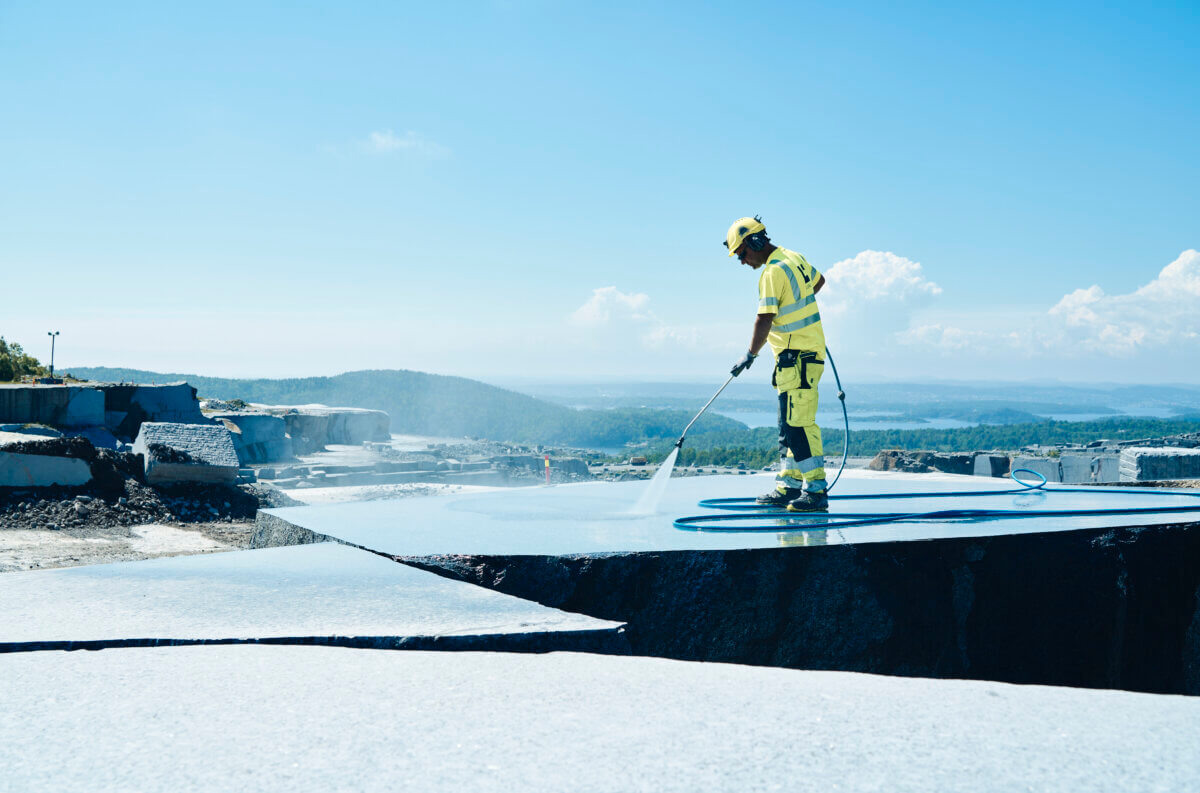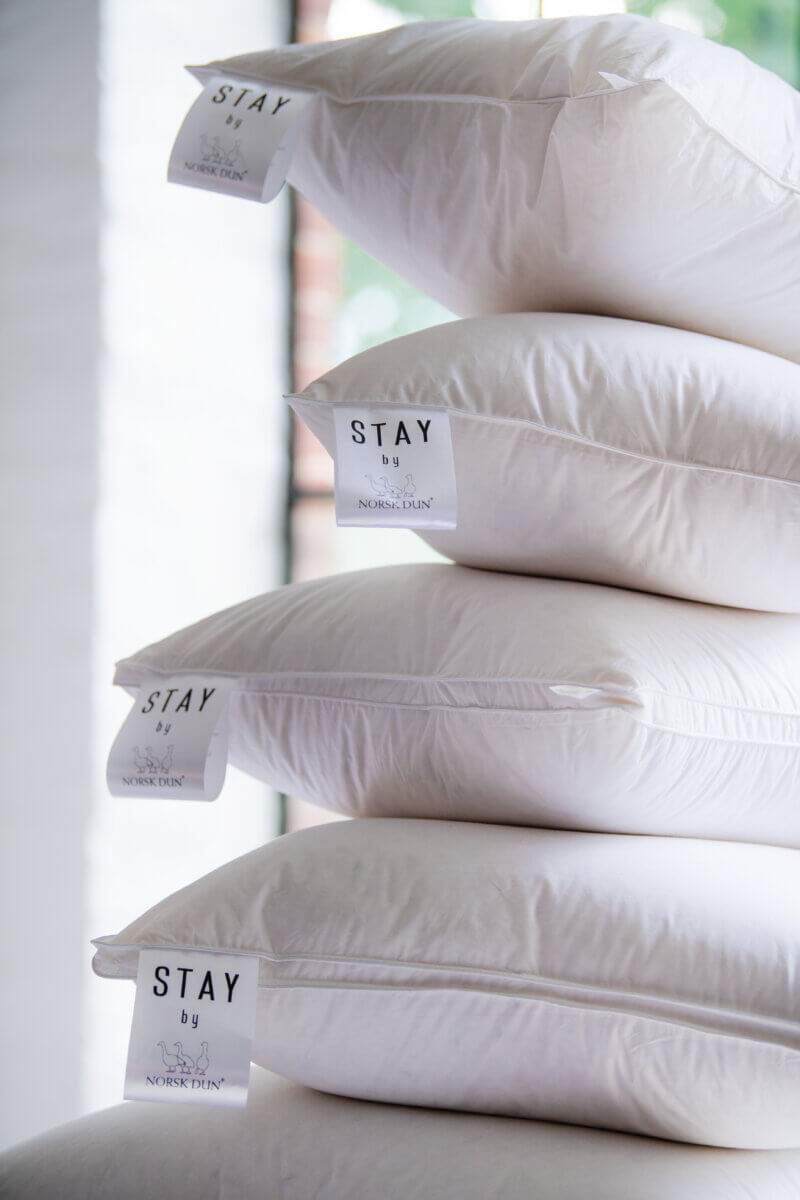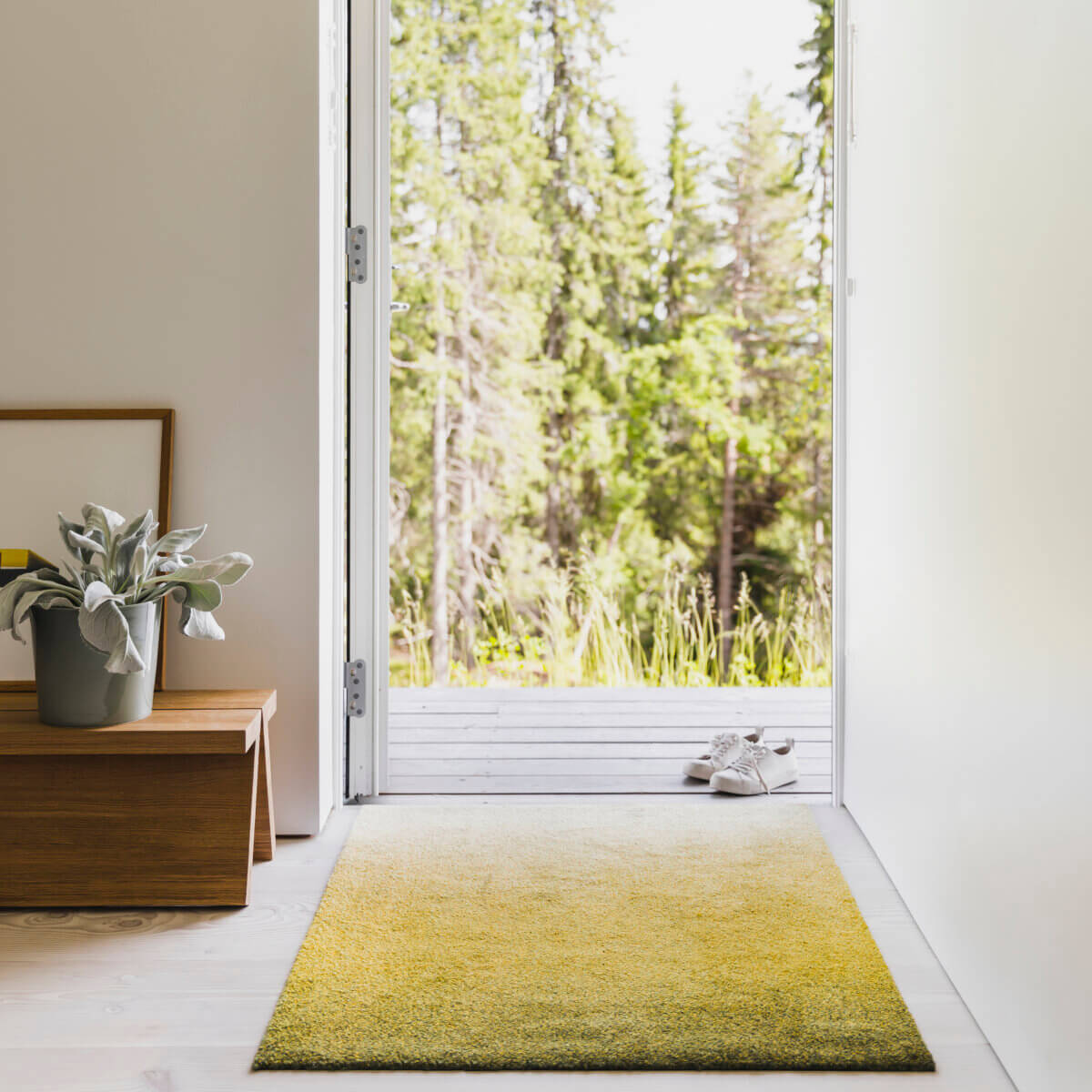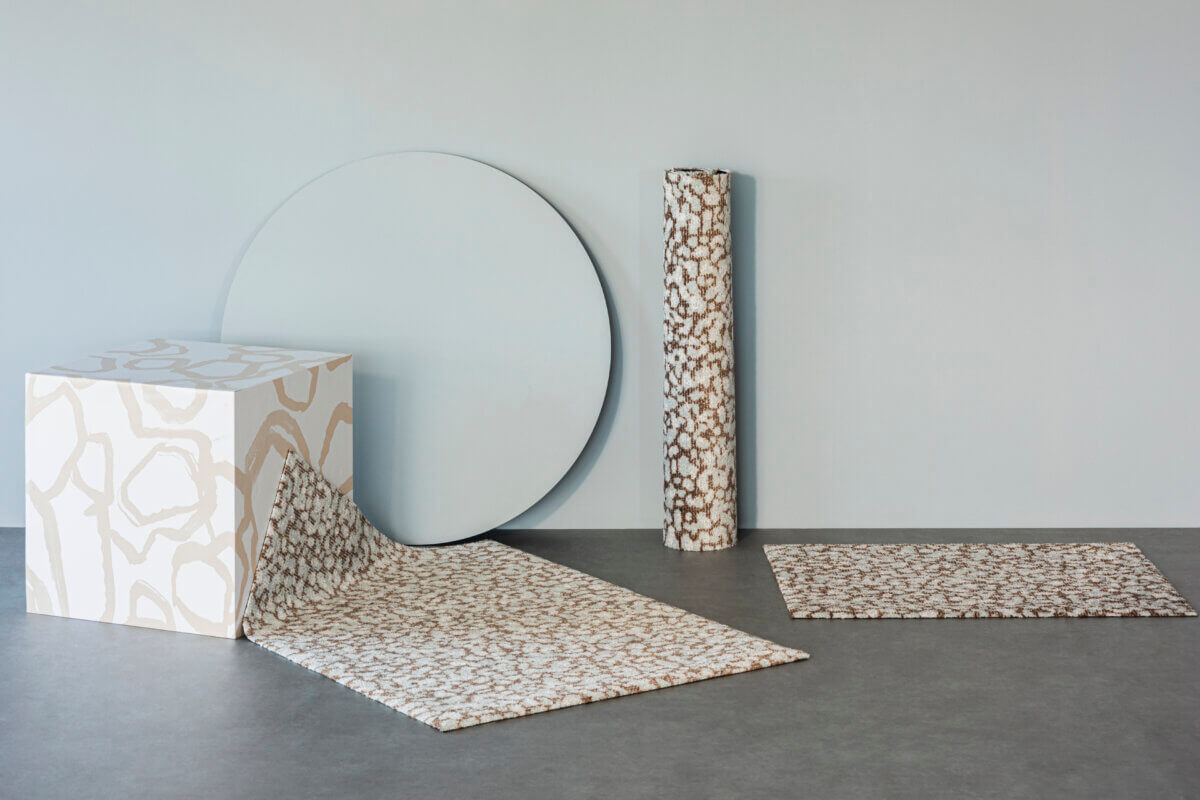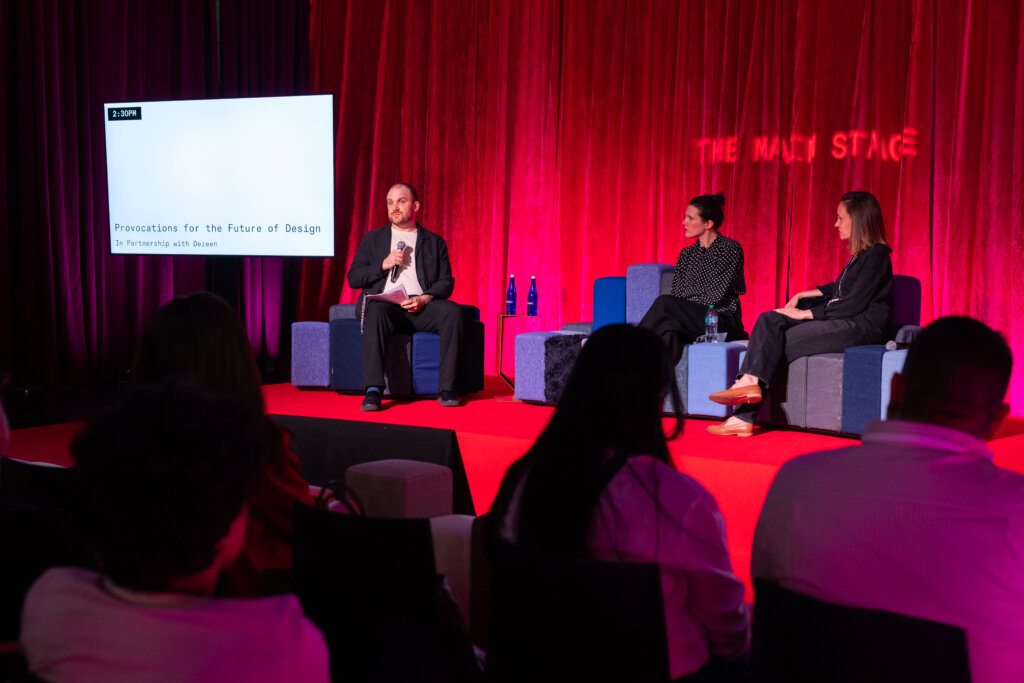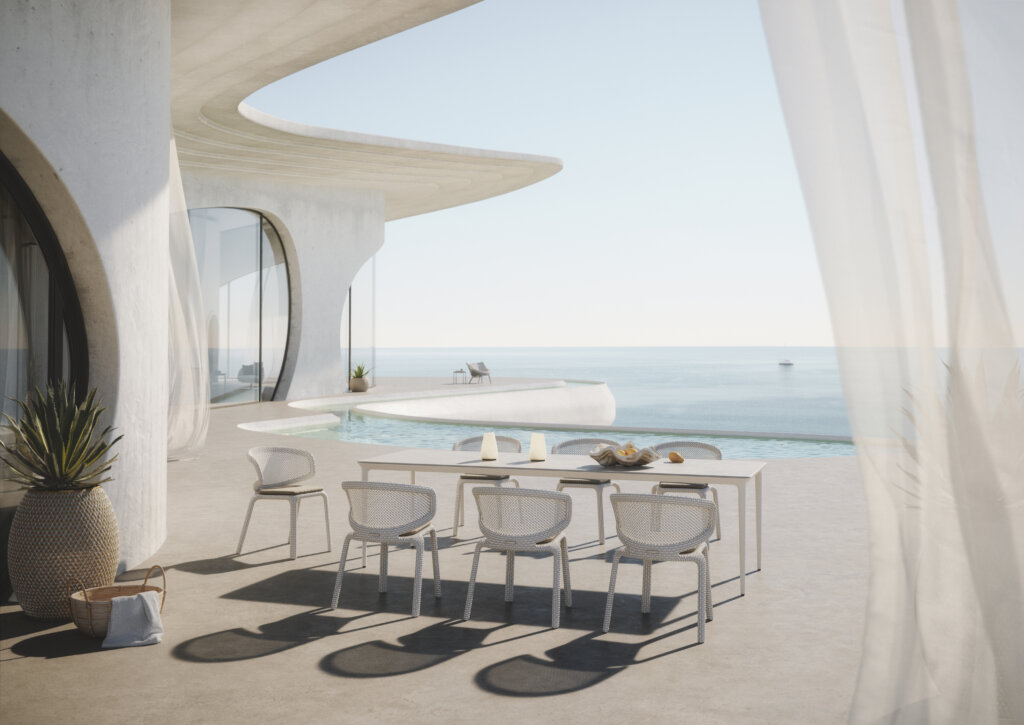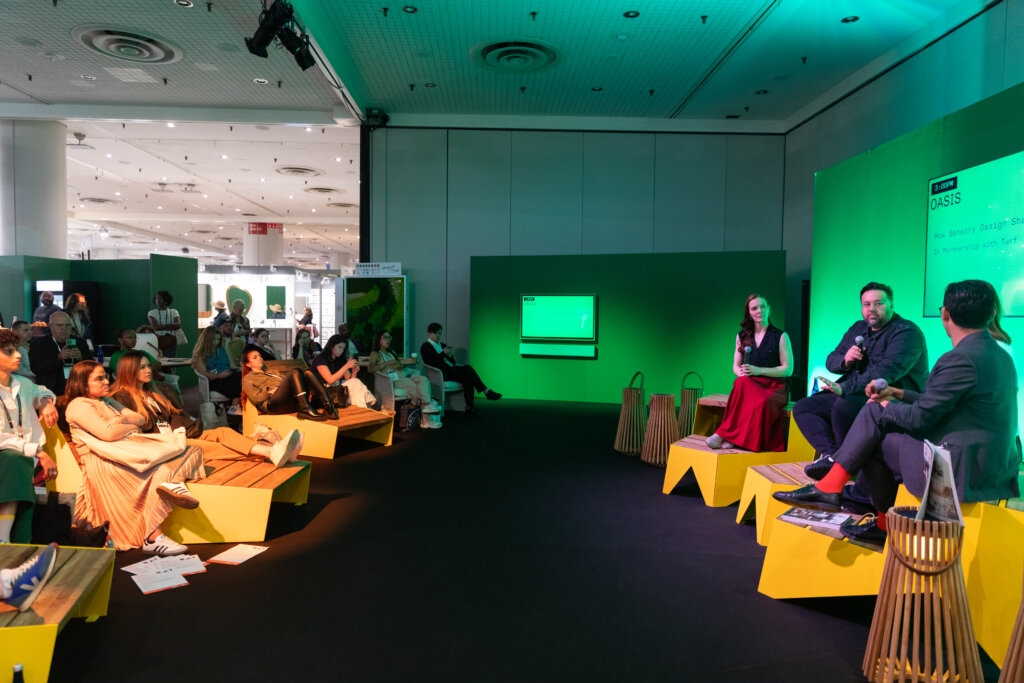
From the top of the world, Norway is passing down a more sustainable future. Meet three brands coming to ICFF 2023 that put the environment first.
Lundhs Real Stone
Lundhs Real Stone offers a collection of 100% natural stones for worktops, tiles, and surfaces for both indoor and outdoor applications. The specially selected, high-quality Larvikite and Anorthosite stones come from Lundhs’ own quarries in Norway, crafted by nature millions of years ago—and with a lifetime more to go. Thanks to the natural character ingrained through fine lines and crystals, each stone is unique and available in a variety of finishes to complement different projects and styles.
With excellent technical properties, Lundhs stones are highly durable and lasting, meaning they won’t need to be replaced. “As the world becomes more aware of what is having a positive and negative effect on the planet, buying habits and consumerist behaviors are changing,” the brand explains, “After decades of overconsumption of mass-produced goods, we’re starting to see a momentous shift in behavioral trends all over the world. Part of this conscious decision change is the choice to invest in high quality products that will last, a direct antidote to the throwaway culture.”
Lundhs’ commitment to sustainability is furthered by how they source their stones: Their Norwegian quarries are managed in accordance with strict environmental requirements and best practices, like reusing water, minimizing emissions from machines, keeping transportation to a minimum, striving to improve efficiency, and utilizing every bit of the stone from the quarry production. In fact, Lundhs is aiming to utilize 100% of their surplus aggregate by 2025 and is restoring their quarries back to nature.
“Having a sustainable focus means that we continuously need to develop and improve on all areas of our business, respecting the environment, the people involved, and the communities we operate in,” shares CEO Thor-Anders Lundh Håkeastad, “In this business, we have regulations and certifications, but as a company we will always look for improvements beyond the regulations. This is reflected in our values: Precision, Engagement and Respect.”
Norsk Dun
Norsk Dun is Norway’s largest producer and supplier of down products, with nearly a century of experience working with down, and offering a range of pillows, duvets, and textiles.
“We own the entire process from idea to production and are a pioneer in environmental and product certifications,” the brand shares, “With short-traveled and sustainable products, we are proud of what we do.”
For many years, Norsk Dun has taken an active role in ensuring the traceability and animal welfare efforts of the down & feather business.
“The down and feathers that we use as filling material in our bedding are sourced only in Europe, and only from suppliers that follow the same strict ethical requirements as we do,” the team explains, “We trust our suppliers, but find that trust works best when it is audited and controlled as well.”
Every product that Norsk Dun produces is labelled with an individually numbered Downpass seal: These certified products are traceable ‘from egg to bed’—the duvets and pillows they produce can be followed all the way back to their origin. “You can trust that we are reliable,” Norsk Dun continues, “and you can hold us accountable by entering the number on your product label on www.downpass.eu to have it verified.”
Heymat
Heymat’s story begins with husband-and-wife partners Sonja Djønne and Thoralf Lian, who were living in Northern Norway, surrounded by extraordinary natural beauty—and equally extraordinary weather. Add in young children and the entrance hall to their home became a dumping ground of shoes, sand, and dirt. The saving grace? An industrial mat that absorbed the dirt and help keep their home clean and welcoming. “It wasn’t pretty,” the founders admit, “but it was smart and effective.”
With a designer’s eye, Heymat set out to manufacture their own industrial mats that would stand up to the task while looking good. “Our aim was to make a doormat that you would be happy to come home to,” the designers share, “which is why our name is a play on the Norwegian expression ‘heimatt’—to return home.”
But marrying function with style was not the only thing the designers had on their mind. “The products we surround ourselves with can—and should—be sustainable,” Heymat states, “It is important for us to use materials of good quality, and the majority of our products consist of 100% recycled PET.”
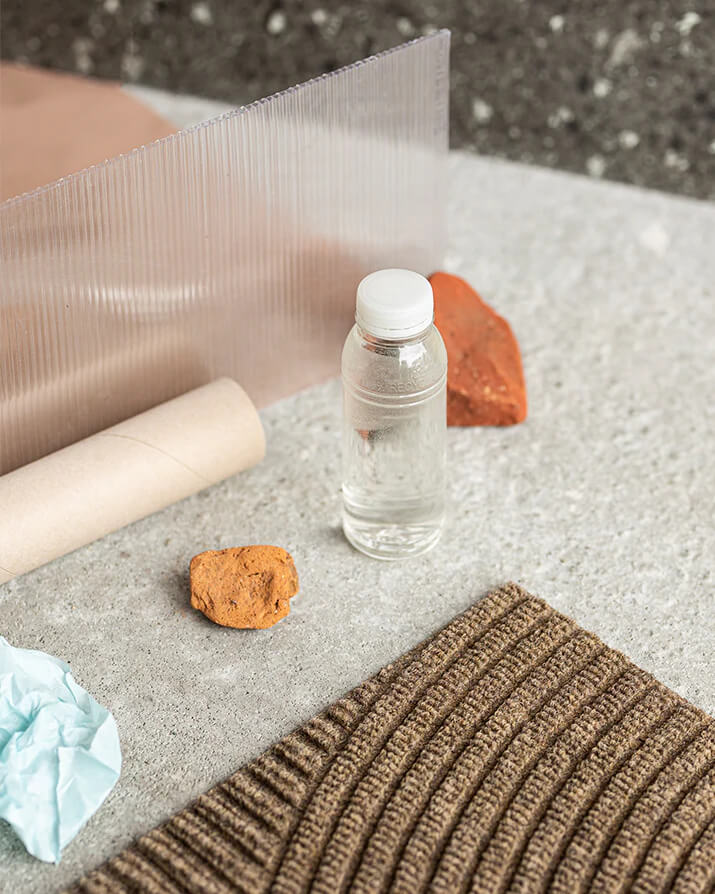
Recycled materials
“PET is a durable material that is perfect for doormats,” they continue, “It has great absorption properties and dries quickly. Made from recycled plastic bottles, its an important environmental choice that feels right for us. Reusing materials and components is vital if we are to achieve a more circular and sustainable manufacturing process.”
Sustainability is also about developing motifs that stand the test of time so consumers want to keep them longer. Heymat understands this, and it is something that influences their design process as they test and tweak their products to make sure that they will last, not just for one season, but for a long time.

